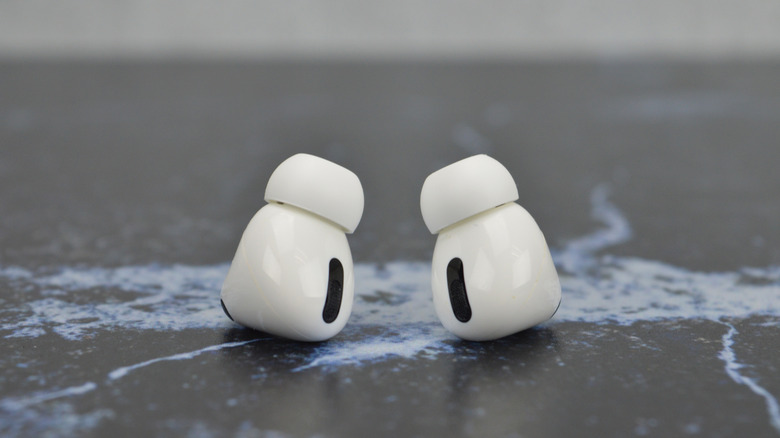Apple Study Shows AirPods Have A Surprising Health-Tracking Ability
With the original AirPods, Apple redefined an industry. The wireless earphones became must-have devices, and every Apple competitor hurried to release their own AirPods. This led to incredible competition in the space, as leading smartphone vendors began to design wireless headphones. Samsung's unveiled its newest AirPods alternative just the other day at a better price than expected. While most players in the business focus on making more affordable wireless earphones, Apple is reportedly working on brand new features for AirPods. Rumors say the next-gen AirPods Pro will have fitness tracking abilities. Apple never confirmed those rumors, but a new study reveals that AirPods can actually be used for monitoring your health.
Ever since it launched the Apple Watch a few years ago, Apple has increased its focus on using its devices for health and fitness monitoring. The upcoming iOS 15 update will bring a few notable health upgrades to users. This includes the ability to share health parameters with loved ones. Apple also introduced a Walking Steadiness feature that will score one's mobility. This feature alone could prove to be life-saving, as it could predict whether someone is at risk of suffering a fall.
While addressing Apple's health feature after WWDC 2021, Apple's Kevin Lynch hinted that Apple might one day collect health data points from more devices, not just the Watch and the iPhone. The implication was that Apple's algorithms might incorporate data from AirPods sensors.
Apple's AirPods can monitor respiratory rate
Apple might add specific health-tracking sensors to future AirPods models, but researchers used current versions to see whether they could track the respiratory rate (RR) of users. All they needed was the built-in microphone, which registered RR before, during, and after exercising.
This is an official Apple study that the company published on its Machine Learning Research portal It's also available on Cornell University's arxiv.org platform (via MyHealthyApple).
Keeping track of RR passively might be crucial for tracking the progression of certain respiratory diseases and monitoring cardio-respiratory fitness. Access to continuously updated data points might help doctors improve the treatment of patients. People suffering from various illnesses could seek medical attention faster than before after receiving prompts from a smart device like the iPhone.
This health study is unique
The researchers used AirPods to grab audio samples at specific intervals before, during, and after training. Then they employed a neural network to remove the noise and analyze the RR sounds. The authors said they found that audio can be a viable signal for passively estimating RR.
The authors say their work is unique:
The work is unique in three main ways, in that it estimates respiratory rate from a wearable microphone under natural ambient conditions both indoors and outdoors, uses a model-driven approach to estimate respiratory rate directly from filterbank energies, and introduces situational awareness through multi-task learning so that the model could discern high [signal-to-noise ratios] SNR conditions from low ones.
This conclusion might encourage Apple to consider employing the microphone in its wearable devices for RR tracking. That's just speculation, however. More work might be needed to prove that the audio analysis algorithms work as intended. Also, there's no telling whether Apple will add RR monitoring capabilities to the AirPods or the Apple Watch. Both of them feature microphones.
AirPods RR study aside, rumors do say that Apple will bring fitness tracking to the AirPods Pro. The next-gen model should launch next year.
